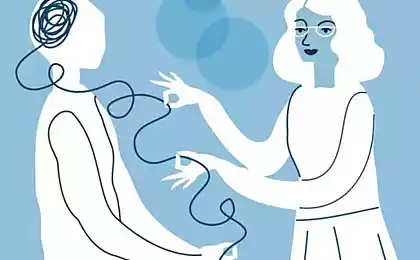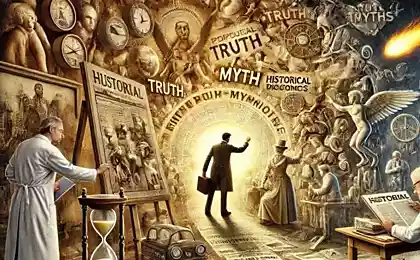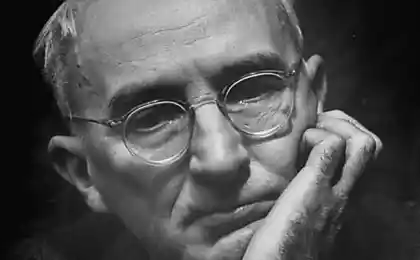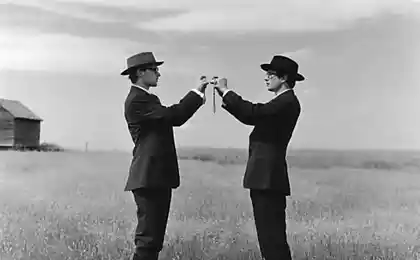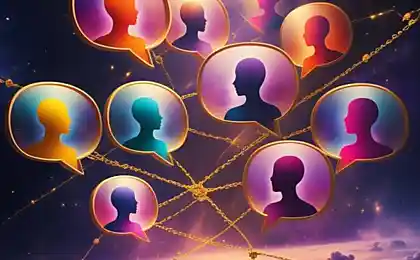678
How to debunk myths interlocutor and convince him to their cause
The best way to be ubeditelnym
Our society constantly creates myths. Many people continue to believe in the outdated stuff, despite all reasonable arguments. We are constantly on the Faktrume Dispelling the myths and know how difficult it is to convince a person to change the view prevailing in his head. However, the "hard" - does not mean "impossible».
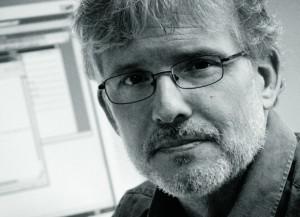
Steven Lewandowski and John Cook conducted several experiments. The result was the book "Handbook whistleblower" for details about how to show the person that he is mistaken, and convince him to their cause. In the "Handbook" examples are climate change and the theory of evolution, but the method can be used in any situation.
The first thing the researchers found - a "boomerang effect": when you tell people that they are wrong, it only strengthens their confidence. For example, in the experiment, the participants cited evidence from the newspaper, contrary to their views and memories, but they are not simply ignored, and tried to harmonize with their point of view.
The irony is that we change other people's own false judgments, is not necessarily true. We think that we have something really understand everything exactly right, and you just have to make people believe and fill the "deficit" in their understanding of how people will only prove the truth, false beliefs disappear immediately. In life it is not enough.
On the way we process information affect psychological factors. We fully rely on their own memory. With this and should work whistleblowers.

The main thing - to find a plausible alternative explanation. Psychologists Hollrin Colin Johnson and Seifert spent the experiment. They told the participants about the fictional fire in a warehouse, add details, but after a while asked to recall what they know about the incident.
Some participants "remembered" that the fire started from a short circuit in a case where the cylinders were explosive gas. When they protested that the cabinet was empty, they still clung to their point of view. Anything contrary to the fact that the fire could have started because the cylinders have not been told.
Additional experiments showed that it can be corrected. Participants were told that it was found out that the cause of the fire was arson. Those who received such a sensible proof abandoned incorrect version cylinders. They were not so sure that they all talked about these cylinders. They were willing to admit that their memory would fail.
People make conclusions based on false information, if these findings explain the reasons for what happened. If the information mentioned in passing, and not a big deal, at least in memory and settles, but her judgments man builds.
So, if you'll just bet it would only strengthen the interlocutor in his right. It should provide an alternative, and not just say no, you're wrong. Of course, people are not necessarily immediately renounce his errors, but the alternative is to change the causal structure, and reduced the effect of misinformation.
Just be careful with this: you yourself can renounce his own opinion, contrary to the facts received, although the opinion can be based on your true memories.
via factroom.ru

Our society constantly creates myths. Many people continue to believe in the outdated stuff, despite all reasonable arguments. We are constantly on the Faktrume Dispelling the myths and know how difficult it is to convince a person to change the view prevailing in his head. However, the "hard" - does not mean "impossible».

Steven Lewandowski and John Cook conducted several experiments. The result was the book "Handbook whistleblower" for details about how to show the person that he is mistaken, and convince him to their cause. In the "Handbook" examples are climate change and the theory of evolution, but the method can be used in any situation.
The first thing the researchers found - a "boomerang effect": when you tell people that they are wrong, it only strengthens their confidence. For example, in the experiment, the participants cited evidence from the newspaper, contrary to their views and memories, but they are not simply ignored, and tried to harmonize with their point of view.
The irony is that we change other people's own false judgments, is not necessarily true. We think that we have something really understand everything exactly right, and you just have to make people believe and fill the "deficit" in their understanding of how people will only prove the truth, false beliefs disappear immediately. In life it is not enough.
On the way we process information affect psychological factors. We fully rely on their own memory. With this and should work whistleblowers.

The main thing - to find a plausible alternative explanation. Psychologists Hollrin Colin Johnson and Seifert spent the experiment. They told the participants about the fictional fire in a warehouse, add details, but after a while asked to recall what they know about the incident.
Some participants "remembered" that the fire started from a short circuit in a case where the cylinders were explosive gas. When they protested that the cabinet was empty, they still clung to their point of view. Anything contrary to the fact that the fire could have started because the cylinders have not been told.
Additional experiments showed that it can be corrected. Participants were told that it was found out that the cause of the fire was arson. Those who received such a sensible proof abandoned incorrect version cylinders. They were not so sure that they all talked about these cylinders. They were willing to admit that their memory would fail.
People make conclusions based on false information, if these findings explain the reasons for what happened. If the information mentioned in passing, and not a big deal, at least in memory and settles, but her judgments man builds.
So, if you'll just bet it would only strengthen the interlocutor in his right. It should provide an alternative, and not just say no, you're wrong. Of course, people are not necessarily immediately renounce his errors, but the alternative is to change the causal structure, and reduced the effect of misinformation.
Just be careful with this: you yourself can renounce his own opinion, contrary to the facts received, although the opinion can be based on your true memories.
via factroom.ru
10 unexpected things that affect the strength of will
21 principle of education through the eyes of a child


